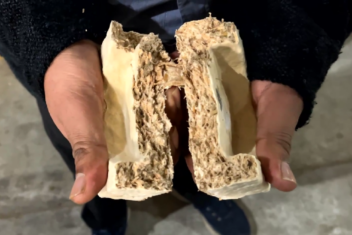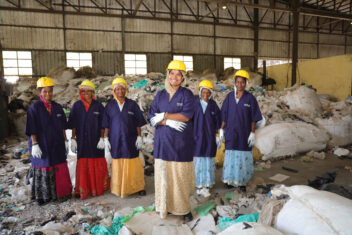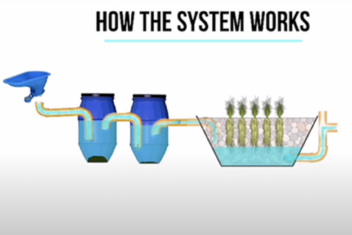Transforming e-waste in Africa
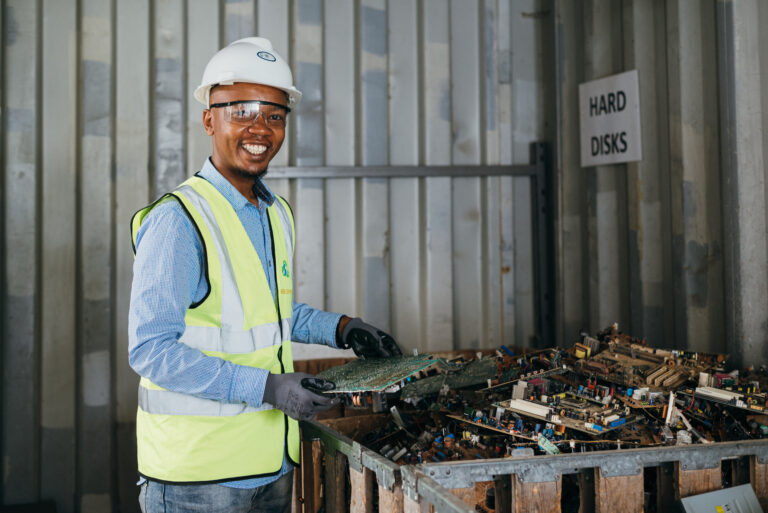
As technology rapidly develops, millions of electrical items are left obsolete and end up being discarded. These are items that too often end up in the environment and become a threat to human health if they are not disposed of correctly, with dangerous substances like lead being released. The scale of the problem is huge; in 2019 the UN estimated that each year an estimated 50 million tonnes of e-waste is being produced but only 17.4% of this is properly recycled.
Today e-waste is now one of the fastest growing solid waste streams in the world, and also one of the most valuable, with e-waste containing many finite materials that can be reused if recycled correctly.
In Kenya, one pioneering social business is standing up to this challenge and turning waste into wealth by ensuring the safe disposal of more than 11,000 tonnes of e-waste and creating hundreds of green jobs for women and youth. Meet the WEEE centre.
The WEEE centre is one of the inspiring Small and Growing Businesses (SGBs) being supported by WASTE’s Take-a-Stake (TAS) initiative. Circular economy and e-waste recycling expert, Boniface Mbithi, is the WEEE centre’s CEO and has led the organisation since its inception in 2012. During his tenure, he has seen the WEEE centre become one of the biggest e-waste management companies in Africa and kindly took time out to share insights on the WEEE centre’s journey to investment.
To start things off, please can you give us a little bit of an idea of what the WEEE centre does and where the idea came from?
The motivation behind the WEEE centre came from a non-profit programme that we were running for many years called Computers for Schools Kenya. We equipped schools, who would otherwise not be able to afford it, with computer equipment. After a few years, some would no longer need the equipment and would end up stockpiling it as they did not know how to properly dispose of the e-waste they were generating. We discovered that this was an issue across Kenya, with an estimated 3,000 tonnes of e-waste being generated each year. This is where we stepped in and came up with a solution to this growing issue by opening the WEEE centre.
We are an e-waste company based in Nairobi, but we’ve started expanding to other countries and we now have a presence in 18 countries on the African continent. We provide safe disposal of e-waste, ensuring that nothing ends up in landfill or in the wrong place in the environment. We recover as much material as we can from the e-waste we collect, to keep these materials in circulation and raise awareness of the importance of this. We provide services to both individuals and companies, so any consumer of electronics automatically is a potential customer.
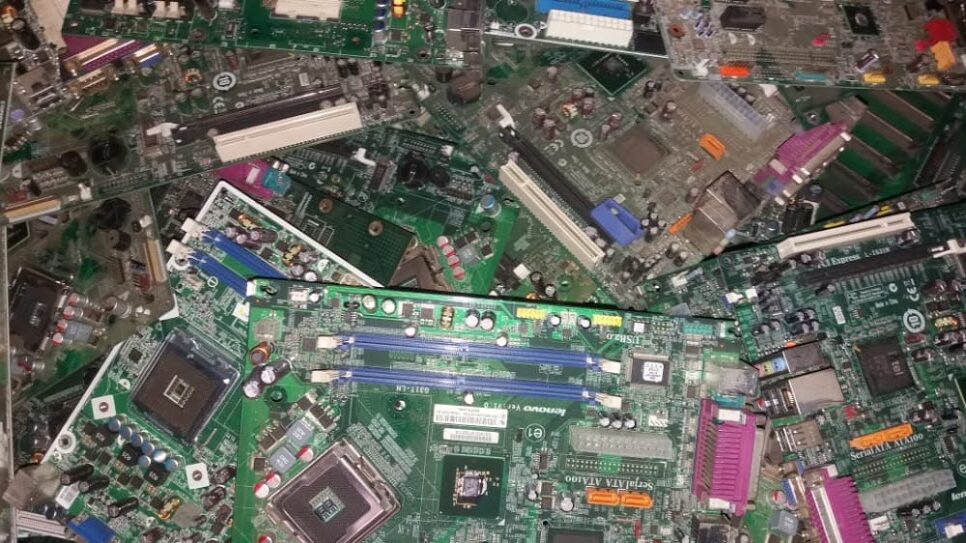
How important do you think social enterprises like yours are in helping us progress towards the sustainable development goals (SDGs)?
When you look at the SDGs we cover so many from life underwater, issues to do with sustainable cities, decent work by providing green jobs, climate actions…such businesses like ours touch on so many different ones.
You mention you now have a presence in 18 countries, what has fueled this growth?
We have created partnerships that span all walks of life and different continents. These have enabled us to grow and access different fundraising instruments. For example, the relationship with Take-a-Stake (Yunus Social Business and WASTE) has allowed us to raise capital and gain investment. Strategic partnerships with corporates have played a huge role too. Some of the big corporates we work with have a presence in multiple countries so if we’re able to provide them a quality service in Kenya, they then go onto to request our services in other regions they work. These things have enabled us to take the company to the next level.
And have you experienced any barriers to gaining investment?
There are barriers especially operating in Africa, and in climate tech which is not an industry that investors have traditionally invested in. As a result, we have not had any equity fundraising or gained investment from investors who really focus on climate, specifically e-waste management. Investors really want to understand who we benchmark with, and our model is different to what they have seen before even though we are profitable and impactful. So, we find we are not getting the right investors, who are able to understand the work we are doing.
And then there is a lack of awareness generally on matters to do with e-waste and legislation issues as the laws are still not very clear on electronic waste.
What do you think needs to be improved to see more investment flowing to SGBs like yours?
There needs to be more showcasing of the impact that we have. We are not being properly showcased, which gives us a hard time when it comes to fundraising because we really have to sell the story ourselves. But, if we can find ways of profiling more businesses like ours and show the impact, I think there will be a lot more people who want to invest, it will open up the space for investors to believe in such businesses. I am hopeful in the next few years, companies like WEEE centre and other social enterprises involved in climate tech will get substantial funding, but right now it’s a bit slow.
Has the investment made by TAS allowed you to raise further funding?
Yes, it has given us credibility from an investor perspective as we are able to show that we’ve got this kind of funding and that brings comfort to other investors. We now, as a result, are looking at raising more money so we can go into urban mining which will enable us to extract more precious materials from the e-waste we process. We have the knowledge, and now just need the investment to set up a facility that will serve not only Kenya but also the larger African continent. So, the investment from TAS has really enabled us to be in a place where we can showcase our readiness for investment.
And what are your future goals for the WEEE centre?
I want to see the WEEE centre doing end-to-end from the collection to the processing, to the circular bit of urban mining, to being the place to go when you think about anything to do with e-waste material recovery. We want to assist government and guide companies in how to establish proper e-waste management policies. And we are looking at going beyond the African continent and becoming a global company.

And finally what advice would you give to other businesses like yours to gain investment and to grow in this space?
You need to be resilient and believe in the mission that you have and make sure it is clear, don’t just take any investment. You must look at what your mission really is because you don’t want to divert from what you believe in and what you want to do. You don’t always have to just take an investment. But the most important thing is to focus on the right thing and create the right network and make sure there’s accountability.
If you would like to partner with TAS and support inspiring businesses like the WEEE centre, or simply find out more, then please contact: [email protected]. Or why not meet another of the inspiring SGBs TAS is working with by catching up with our previous interview with Spouts of Water in Uganda.
